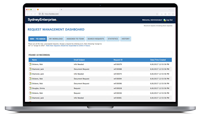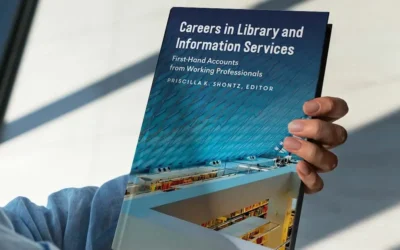Researching with GenAI: Tools & Tips for Special Librarians
Lauren Hays
When generative artificial intelligence (GenAI) first became widely available, there was a great deal of discussion about how it would “hallucinate”—that is, make up content and sound very sure of itself when doing so.
From my personal experience, if I asked GenAI to provide references it would comply—but they would rarely be actual sources. Instead, the AI would give me references to sources that sounded very legitimate and appeared to be by authored by real people. But when I dug deeper and tried to find the original, it became apparent that the source did not exist. In other words, the AI had “hallucinated” a source of its own creation, rather than providing me with an authentic one.
More recently, though, I’ve found that GenAI is getting much better at locating sources that do exist and are directly related to the topic I’m researching. Even with the free version of ChatGPT, for example, I have asked for references for a topic and it has accurately provided them. However, if I ask for 10 references, it may only provide 4 unique ones.
It’s certainly not perfect, but this growth of GenAI’s abilities encouraged me to start experimenting with it for research. As librarians, our abilities to locate sources are greater than most. So, while I still haven’t found GenAI to provide new sources that I would have been unable to locate myself using traditional databases or Google Scholar, I do see how GenAI could benefit anyone less familiar with literature searching or less familiar with a specific topic.
7 GenAI Tools for Special Librarians to Explore
Now and in the future, GenAI tools are going to affect the research process. In particular, the following GenAI tools may be worth familiarizing yourself with (I included taglines to provide context for each tool):
- Elicit: “Analyze research papers at superhuman speed.”
- Consensus: “Find the best science, faster.”
- Research Rabbit: “We’re rethinking everything: literature search, alerts, and more”
- Semantic Scholar: “A free, AI-powered research tool for scientific literature.”
- Scite: “Enhance your research with an AI built for trust.”
- Connected Papers: “Explore academic papers in a visual graph.”
- Perplexity: “Where knowledge begins”
These tools provide unique ways of conducting research and visualizing the results. I encourage you to explore them and determine how they may be beneficial for your own research or the research your stakeholders are conducting.
AI Specialized for Research vs. General AI Tools
While there are unique AI tools for research, I do think the more standard GenAI tools such as ChatGPT, CoPilot, Gemini, and Claude will continue to get better at research. Even now, ChatGPT has ways to add data visualization. It will be important for us to know how to use these tools, provide support to our stakeholders who can benefit from them, and be able to explain the drawbacks and concerns GenAI introduces into the research process.
More on the drawbacks and concerns in an upcoming post…
Lauren Hays
Dr. Lauren Hays is an Assistant Professor of Instructional Technology at the University of Central Missouri and a frequent presenter and interviewer on topics related to libraries and librarianship. Please read Lauren’s other posts relevant to special librarians. Learn about Lucidea’s powerful integrated library systems, SydneyDigital and GeniePlus, used daily by innovative special librarians in libraries of all types, sizes, and budgets.
**Disclaimer: Any in-line promotional text does not imply Lucidea product endorsement by the author of this post.
Never miss another post. Subscribe today!
Similar Posts
AI and the Transformation of Information Literacy
Due to the rise of artificial intelligence (AI), information professionals must evolve their teaching and training approaches as technology reshapes the information landscape, because AI has transformed what it means to be information literate.
4 Ways to Promote Sustainability in Special Libraries
The path to sustainability in special libraries combines technological advancement, waste reduction, collection digitization, and community education.
Interview with Technical Services Librarian Becky Givens
Becky Givens is a Technical Services Librarian featured in the book Careers in Library and Information Services, which includes a section on careers in special libraries where librarians describe the work they do in various settings. My interview with Becky is below.
Interview with the Author: Dr. B. Chernow on Going Beyond the Internet
Special librarians know searching the Internet answers specific questions, but you miss or misinterpret information if you only consult the Internet.





Leave a Comment
Comments are reviewed and must adhere to our comments policy.
0 Comments